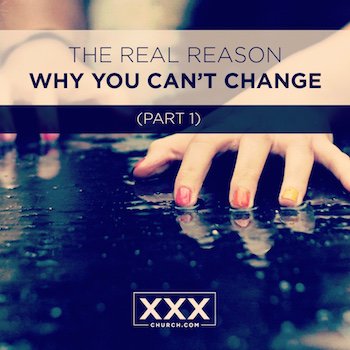 Throughout the years I’ve heard many stories from people who have talked about wanting to change. They’ve made commitments to stop using pornography, having anonymous sex, or masturbating. But for whatever reason – and there have been many – they haven’t been happy with their behavior. They’ve felt shame around it, it has interfered with other aspects of their lives, or it has simply left them feeling empty.
Throughout the years I’ve heard many stories from people who have talked about wanting to change. They’ve made commitments to stop using pornography, having anonymous sex, or masturbating. But for whatever reason – and there have been many – they haven’t been happy with their behavior. They’ve felt shame around it, it has interfered with other aspects of their lives, or it has simply left them feeling empty.
These men and women have made commitments ranging from at least putting their behavior into perspective to feel less guilt about it – to at most stopping the behavior altogether. Regardless of the nature of the commitments, they all have one thing in common: they want change.
Unfortunately, many of them have come up short. Not once. Not twice. Numerous times. Over and over.
They’ve made the verbal commitments to change.
They’ve set sobriety dates.
They’ve removed all sources of their “drug of choice” from their environment including destroying their computers or switching back to a dumb phone.
They’ve attended recovery groups and read the best books on the subject.
But then, when they least expected it, they felt the undertow of their behavior pulling them back into old patterns.
Why, then, is it so difficult to change?
I love this question. I love it because there are so many things that we talk about as human beings, so many things that we get distracted by, but in the end it all comes down to this one thing: why can’t we live the life we would like to live? Why can’t we change, especially if that’s what we really want?
I have a simple answer, but not an easy one…
It’s so difficult to change because many of us have formed these habits to protect us from experiencing what we fear most: disconnection, isolation, and loneliness.
Think hard on this one. How badly do you want to feel connected, especially to the people who first gave you meaning in your life – parents, siblings, or other caregivers? Since birth we have made connections with the people nearest to us. These connections have insured that we were fed, housed, and warm. These connections meant life.
As we grew older, whether we realized it or not, many of us wanted to maintain these connections, if only in our minds, because they brought us a sense of safety. Even if those people weren’t very good to us when we were young, at least they were familiar.
And if they weren’t very good to us, our minds are going to work double time to stay connected. We’re going to take on the bad that we were told we were. We’re going to confirm what we think they think of us because, to the mind, it is far better to feel bad about who we are than to feel disconnected, isolated, and alone.
It is far better to feel bad about ourselves than to risk the horror of nothingness (Tweet This!).
Does this sound like you? Can you relate? Maybe you can. Maybe a lot of gears are whirring in your mind right now and locks are clicking into place.
But what can you do about it? We’ll take a closer look at that in part 2.


